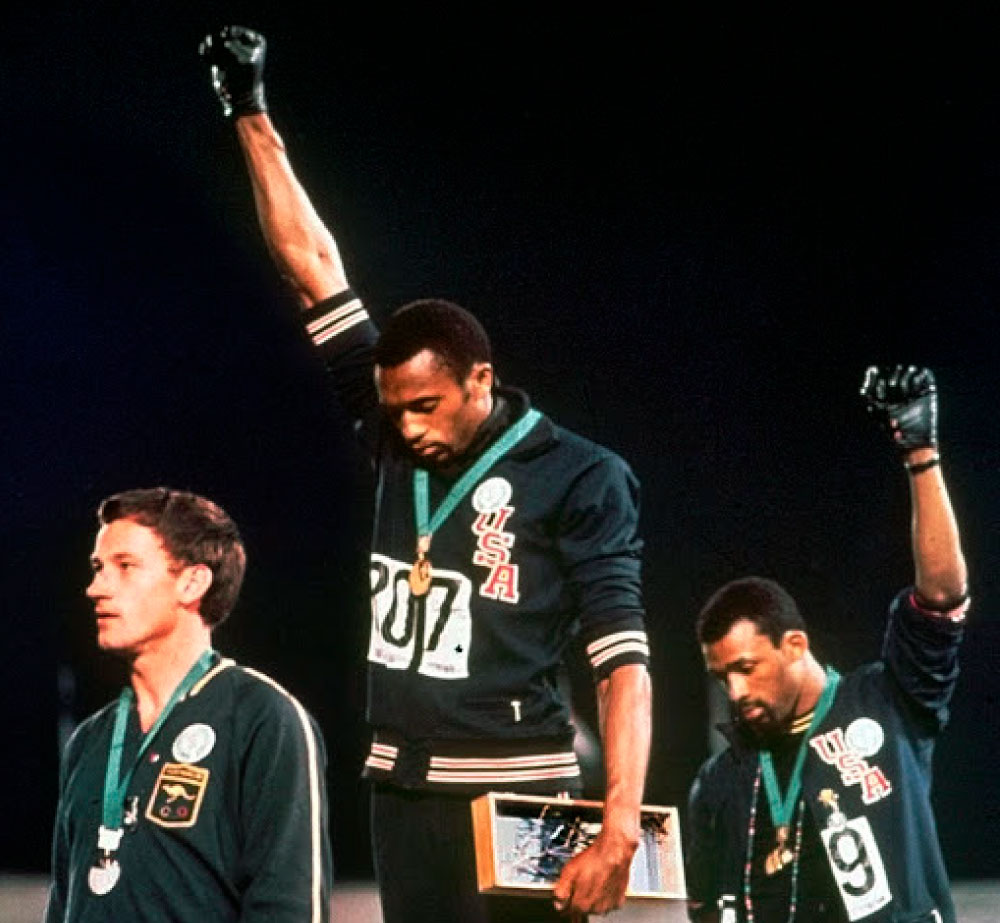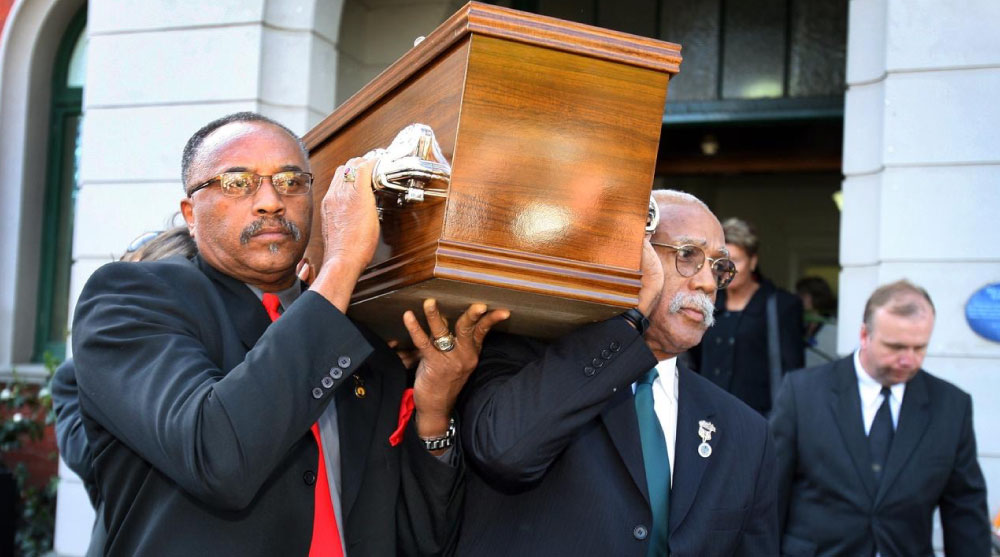
Last Friday was the 52nd anniversary of one of the most historic and controversial moments in the history of the Olympics. Most of us are familiar with story of Tommie Smith and John Carlos, who after finishing first and third in the 200-meter dash at the 1968 Mexico City Olympics, raised their black-gloved fists in protest during the playing of the U.S. national anthem. 1968 was a tumultuous year in America. Earlier in the year, Martin Luther King Jr. and Robert Kennedy were both murdered, and Smith and Carlos were determined to use their platform to bring global awareness about the plight of Black and poor people in America. Their image remains one of the most iconic in American history. Not surprisingly, Smith and Carlos were ostracized in the subsequent years; stripped of the medals, and vilified in the media. Their lives were threatened and their careers were destroyed.
However, very few know the story of Peter Norman. Norman was a talented but little-known sprinter from Australia who finished second in that same race and shared the podium with Smith and Carlos. Most people assumed that he was relatively unaware of the circumstances that surrounded him on that day. In fact, nothing could be further from the truth. Norman wore the same “Olympic Project for Human Rights” patch that Smith and Carlos wore on the podium, and it was Norman who suggested that they each wear a single black glove. When Norman returned to Australia, he refused to condemn Smith and Carlos. Australia had their own apartheid policies at the time, and Norman became an outcast in his own country.

In 1972, Norman qualified again for the Olympic games in Munich, but was denied a place on the team by the Australian Olympic Committee. While Smith and Carlos eventually became the legendary figures they deserved to be, even attending the White House with the American Olympic team after the Rio Games two years ago at the invitation of then-president Barack Obama, Norman spent the rest of his life struggling personally and working odd jobs. In 2006, Norman died of a heart attack and Smith and Carlos were both pallbearers at his funeral. In 2012, the Australian Parliament issued a posthumous apology to Peter Norman for not allowing him to participate in the 1972 Olympics.
The fight for civil rights has had many unsung heroes and the story of Peter Norman is just one of them.
What if Donald Trump’s greatest strength is something the rest of us refuse to acknowledge? In this thought-provoking episode, Gary Acosta explores what liberals, global leaders, and entrepreneurs might learn from Trump’s approach to leadership. From mastering direct communication to shaping loyalty through perceived authenticity, Gary dives into the mechanics of modern influence—even when the messenger is flawed. Whether you agree or disagree with Trump, the lessons here reveal surprising truths about power, persuasion, and strategy in today’s world.
What do people really mean when they say, “DEI is destroying our country”? In this powerful episode, Gary Acosta takes on the backlash against Diversity, Equity, and Inclusion—and asks whether it’s become a coded way to express racism. He breaks down myths about lowered standards, exposes the hypocrisy behind legacy admissions, and challenges the silence around nepotism and privilege. DEI may be a polarizing term today, but Gary argues that its core values remain essential to capitalism, innovation, and fairness in America’s future.
The Latino brand impacts every aspect of our lives—from how we're viewed in business and media to the opportunities we’re given. In this first episode, Gary Acosta explores why a unified, empowered narrative is essential for Latino prosperity. Learn what Gary shared at the United Nations, how he raised $100M for Latino-led ventures, and why changing the perception of our community is the key to unlocking capital, influence, and success.
